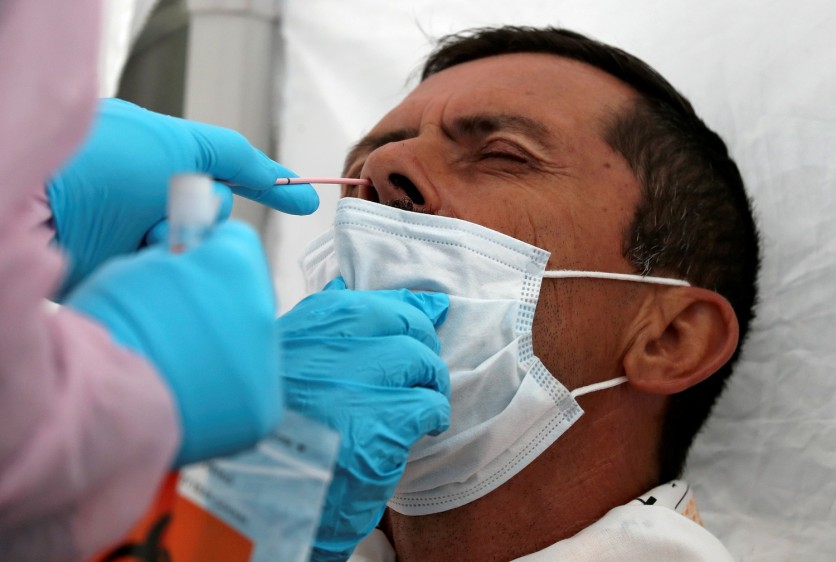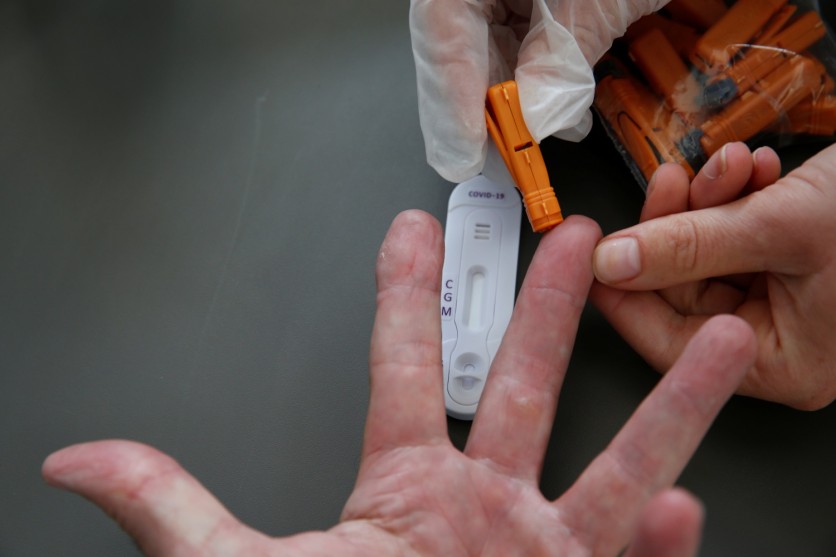Engineering professors from Virginia Tech promised to speed-up the COVID-19 test using the biosensing process. Unlike swab testing that takes hours to get the results, biosensing tests sample droplets within a few minutes.
According to South China Morning Post, mechanical engineering associate professor Jiangtao Cheng and electrical and computer engineering assistant professor Wei Zhou from Virginia Tech designed an ultrasensitive biosensing method that confirms the presence of coronavirus in a sample within minutes. Their study has already been peer-reviewed and published in ACS Nano on June 29.
According to a statement published on the Virginia Tech website on July 17, the Chinese researchers used a laser beam to generate fingerprint light signals of samples' molecules that can be compared with those of the coronavirus to checks its presence.

While current COVID-19 tests, particularly the nucleic acid swab tests, require few hours to days to get results because they involve time-consuming processes such as extraction and comparison of viral genetic material. However, these are still subject to error if there is not enough amount of virus in the sample to show a positive result.
In contrast, Cheng and Zhou's method skips the extraction and other time-consuming procedures because all contents of a sampling droplet can be detected, condensed, and characterized within minutes. Not only does it speed up the process, but also significantly reducing the margin of error as well as giving a holistic analysis of all the materials present in the sample, even with a low amount of virus.
With the number of COVID-19 cases increases continuously, it is significant to get the test results earlier, so proper care and treatment can be applied soon. Although there are affordable home testing kits available in the market that can deliver fast results, their accuracy is questionable. This is why the World Health Organization does not promote its use.

"There's significant room to improve the pace of coronavirus testing," the Virginia Tech statement noted. The university added that this was what the two researchers have found.
What is biosensing?
Biosensing has gained the attention of many researchers worldwide, particularly in advancing healthcare and medical applications. A biosensor detects a specific biological analyte and monitors its movement within a certain environment.
Cheng and Zhou's biosensing method is ultrasensitive using a surface they created where water containing the sample freely moves in different ways, which is a key factor to this method.
The process starts by putting a sample into the liquid, which is then introduced into an engineered substrate surface to check the droplet's movement. A nanoantenna coating is applied to get more friction in a small area while droplets can move more quickly in other areas. These water movements transport data in a programmable way in just minutes.
Initially, the researchers did not discuss how the new technique will be applied, but Virginia Tech subsequently said in the statement its potential significance for COVID-19 testing. The Chinese researchers currently seek for US National Institutes for Health funding for the method's wide application.
![Apple Watch Series 10 [GPS 42mm]](https://d.techtimes.com/en/full/453899/apple-watch-series-10-gps-42mm.jpg?w=184&h=103&f=9fb3c2ea2db928c663d1d2eadbcb3e52)



